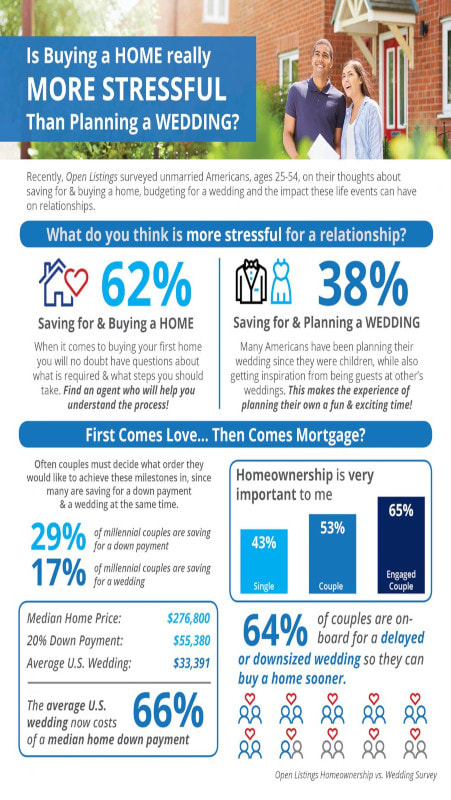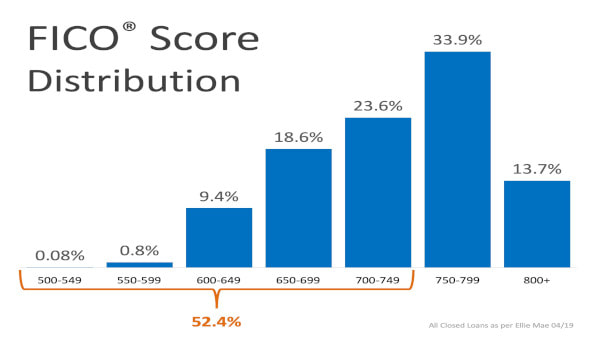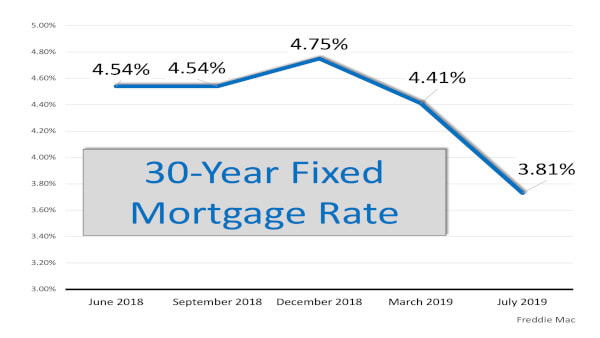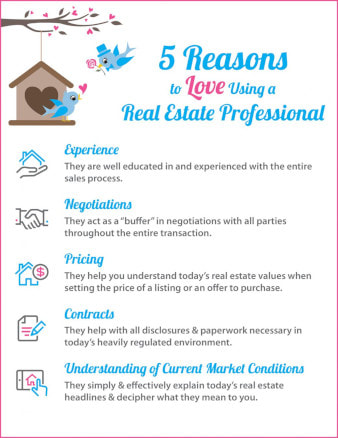|
If you're looking to buy a home in Colorado Springs, Co, here are the top ten things you need to know before you contact a real estate agent: 1. Renting Vs Owning I'm sure you've heard it many times: "I can either pay my landlord's mortgage or mine." It's true, but also keep in mind other costs: When you rent, you're not flushing your money down the toilet. You're paying for the right to live in a covered space. When you own a home, you're also building equity, provided the economy stays steady, which is what you're also doing when you own stocks. There are also upfront fees associated with both renting and buying. With renting you have application fees, security deposits, and occasional rent hikes. With buying, you've got the cost of the home inspection, appraisal, the earnest money deposit, and any cash to close your lender will require you to bring to the closing table (called closing costs). When you rent, you don't have to pay for maintenance to come fix the AC or the refrigerator. When you own your own home, you are responsible for paying for everything that goes under, so it's very very wise to have a reserve of cash that you can throw at unforeseen costs. Depending on your loan, you will also have some amount of a down payment to bring to the table when you buy a home. It could be anywhere from 1-5% (CHFA loans, first-time homebuyer loans) on up to the traditional 20% or more. 2. Any Recession or Housing Bubble is Not Going to Affect You. If we lived in a city that no one wanted to be in, then my answer would be different. However, if you want to buy a home in Colorado Springs, CO, then understand that when markets go down, they don't affect the popular and desirable cities so much. Most people don't understand why we had a recession in 2008, and they are afraid it will happen again. 3. It's a lot of work and stress. When you're thinking about buying or selling your home, of course you want more information before you do it. You want to make sure you're making the best decision possible. There is a lot of stuff that goes into buying and selling homes, and while you could assimilate it all, and you should know at least some stuff, the point of having a real estate agent is so that they can do the heavy lifting for you. Real estate is a full-time job. With over 230 steps that have to happen with every successful closing, why would you add on to your already busy life to do another full-time job? A real estate agent is there to represent you and tell you what your options are so that you don't have to. 4. It's Not Going to Go Super Fast. The average homebuyer looks at about 10 houses before pulling the trigger. No one is expecting you to make a decision immediately, and you will likely need some time to compare a few houses before you get a sense of what you really want. If you've been house browsing online, however, you may have some ideas already on what you like and don't. 5. The House You Like is Not Going to Be There Tomorrow. Many of my clients have made the mistake of touring a house, falling in love with it, but then playing games. They decide to wait to make an offer, to see if the seller will drop the price any more. Then, either another buyer makes an offer at the standing price, or the seller finally does drop the price, and all of a sudden, you have too much competition and too many other offers, and now you've lost the house you wanted. My rule is that if the house you're deciding on meets at least 80% of what you're looking for, then you should be writing an offer on it. Don't wait to see if you can get a "bargain" on a house. Especially in Colorado Springs, that house isn't going to sit there forever. Colorado Springs has been taking the top 1 and 2 spots on best places to live in the US for a while now. Everyone has the same idea you do: wait and see if I can get it cheaper. Don't do that. You can't afford to. 6. You Don't Necessarily Need A 20% Downpayment. Depending on your qualifications, you may qualify for a loan that only requires 3-5% down. You may even be able to do less under CHFA. Lenders are aware that 20% is asking a lot, and that's not a set in stone thing anymore. 7. You Don't Need A Perfect Credit Score. You don't necessarily need a high FICO score in order to get a loan. Again, this depends on the individual lenders, but you may be able to get a loan with a credit score as low as 600. It's worth talking to a lender about your standing. 8. Home Prices Continue to Increase. Regardless of how you think the economy is doing, average home prices continue to steadily increase. Sure you may get lucky and snag a house in a recession, but are you really going to wait around for that to possibly happen? Do you want a home to live in or an investment property? Economists at Fannie Mae, Freddie Mac, the Mortgage Bankers Association, the Home Price Expectation Survey, and Core Logic have all been predicting an increased housing appreciation for the rest of the year (2019), and a more level appreciation rate beyond. Many economists who predicted a housing bubble burst in 2019 or 2020 have since changed their minds and now no longer expect that to happen. Anyone who thinks that a recession may happen at all has said that it wouldn't affect house prices anyway. It was a scare, and now it's over. 9. Mortgage Rates Are Low. As of summer 2019, mortgage rates are low. Like super low. They're close to 3.5% now. If you're waiting for a sign from above, the interest rates don't get much better than this. People have been buying houses, even when the interest rates were in the double digits. Right now you're in a great position to pay way less in interest, so take advantage of that. 10. Respect The Job of A REALTOR®. A real estate agent has a few things that you may not have: A. Experience - they've bought and sold enough homes to know what the pitfalls are, and how to ensure a smooth transaction. B. Negotiating - a good agent negotiates with the agent on the other side, in order to get you the best deal. There's a finesse with knowing how much you can push as an agent, and how far will lose you the deal altogether. C. Handholding - coupled with negotiating, a good agent will be able to calm you down and guide you emotionally and rationally throughout the home buying process. Most people get emotional during the process, and, if left to yourself, you might let that emotion out during the transaction. Bad form. Your agent will be able to remain neutral on your behalf. I have saved many deals that would have fallen through due to my client not thinking clearly because of his/her emotions, and they closed on the house, satisfied to finally own it. That wouldn't have happened had they tried to do it themselves. D. Pricing/Market Issues - "What are the comps on this house?" - Every buyer ever, to their agent. Every buyer wants to make sure they're not overpaying for a house, forgetting that their lender-required appraisal will solve that problem. Also, if a house is listed for say 300k, and it's been on market for 4 days, and you want to know what other houses in the neighborhood have sold for, and there are two offers on the house right now, does it really matter what the comps are? A house is worth what another buyer is willing to pay for it, regardless of what you or your agent think it's worth. Colorado Springs is cutthroat; you can't afford to waste time wondering if the house is worth that much. It is worth that much. Going back to that example, let's say that same house is selling for 300k, been on market 4 days, and no offers. Put yourself in the seller's shoes. Are you really going to take an offer for 280k, when you've only been on market 4 days? No, you're going to wait at least two weeks to see what kind of action you get before you make a price cut. Asking for comps on a house is a waste of time. If it's a newly or newer listed house, the seller won't take whatever lower number you're entertaining anyway, and if it's been on market 54 days, and they haven't dropped the price once, do you really think they will now? Don't you think their agent has recommended that already? E. Contracts - your agent knows how to write a contract. Every year, these things get more and more complicated. Every piece of legal jargon that has been added to the Colorado state approved contract forms has been added in there for a reason: there was a lawsuit over just that piece. This is not buying a couch on Craigslist, or a bed on FB marketplace. This is a far more complicated buy, and a smile and a handshake isn't going to save you if you end up in court. Not even a pinky promise will. REALTORS® are a profession for a reason, and they are worth every penny. They have ethical guidelines that are enforced, they have continuing education classes they are required to take every year, and they are all self-employed, which means they pay both employer and employee taxes by themselves, and they pay all their own business expenses every year. A real estate agent is a real profession that requires a lot of work in order to know what you're doing, much less being well known in your own city. It pays to use one and save yourself the headache of trying to do everything on your own. It's the concept of time>money that makes the difference in my life, and I prioritize if something is worth me taking care of it, or paying someone else to. Why you want an agent. 1. They educate the buyer on the process. Particularly if the buyer has never done this before, a good agent will explain everything to expect during the process and handhold along the way. 2. Agents are a second pair of eyes. They can show you potential problems they might spot with the property, or other things you may not have noticed on your own, such as water damage on the ceiling, or that the house has no space for a dishwasher (easy to overlook!), etc. 3. A good agent will be able to negotiate better than you could, and get more than you would. Some buyers are shy on asking for what they really want, or sometimes, your agent will find out something that he or she can negotiate with, that you wouldn't have discovered on your own. 4. A good agent has a network of services and contractors when you need one. You relationship with your real estate agent shouldn't end once you close, as you can utilize them for handmen references, plumbers, concrete, landscaping, and more. They'll also be able to give you good lender recommendations when you are starting out, so don't forget to ask them for their favorite lenders! 5. Finally, a good agent will know their own city, and can give you recommendations on restaurants, things to do, and useful info, like "If you live near Ft. Carson, you will sometimes hear gunshots. It's not the neighborhood, it's just because you're close to the base and they are doing shooting drills." You may even get lucky and discover your agent knows about local politics, and can tell you about current Colorado Springs political measures that may affect your neighborhood! More Info If you are serious about buying a home in Colorado Springs, then you can also download my free buyer's guide to homeownership below:
If You Are Looking for A Real Estate Agent in Colorado Springs I have been a real estate agent since 2015, and still going strong. I run this blog as a side hobby to my main job, and I try to make this blog as helpful and informative as possible. I'm always open to suggestions and feedback!
If you are looking to buy a home in Colorado Springs, CO, and would like to speak to a real estate agent, please contact me on my contact me page, or visit my main real estate site for Colorado Springs. I hope to see you in a home!
0 Comments
Your comment will be posted after it is approved.
Leave a Reply. |
||||||
|
I'm Kevin James Bond, native to Colorado and author of this site, which exists to educate anyone who wants to hear a local's thoughts and experiences with Colorado Springs and the surrounding areas. I am also a Colorado Springs real estate agent. You can learn more about my real estate services at Kevin James Bond, RE/MAX Real Estate Group.
|
Copyright © 2019-2023 Colorado-Springs-Colorado.com













